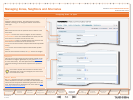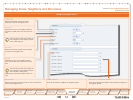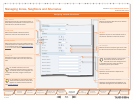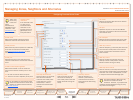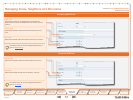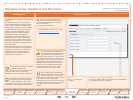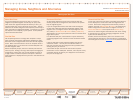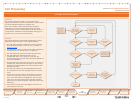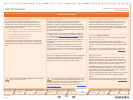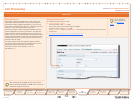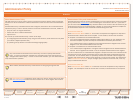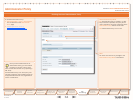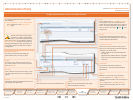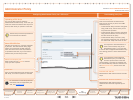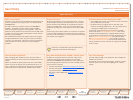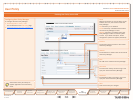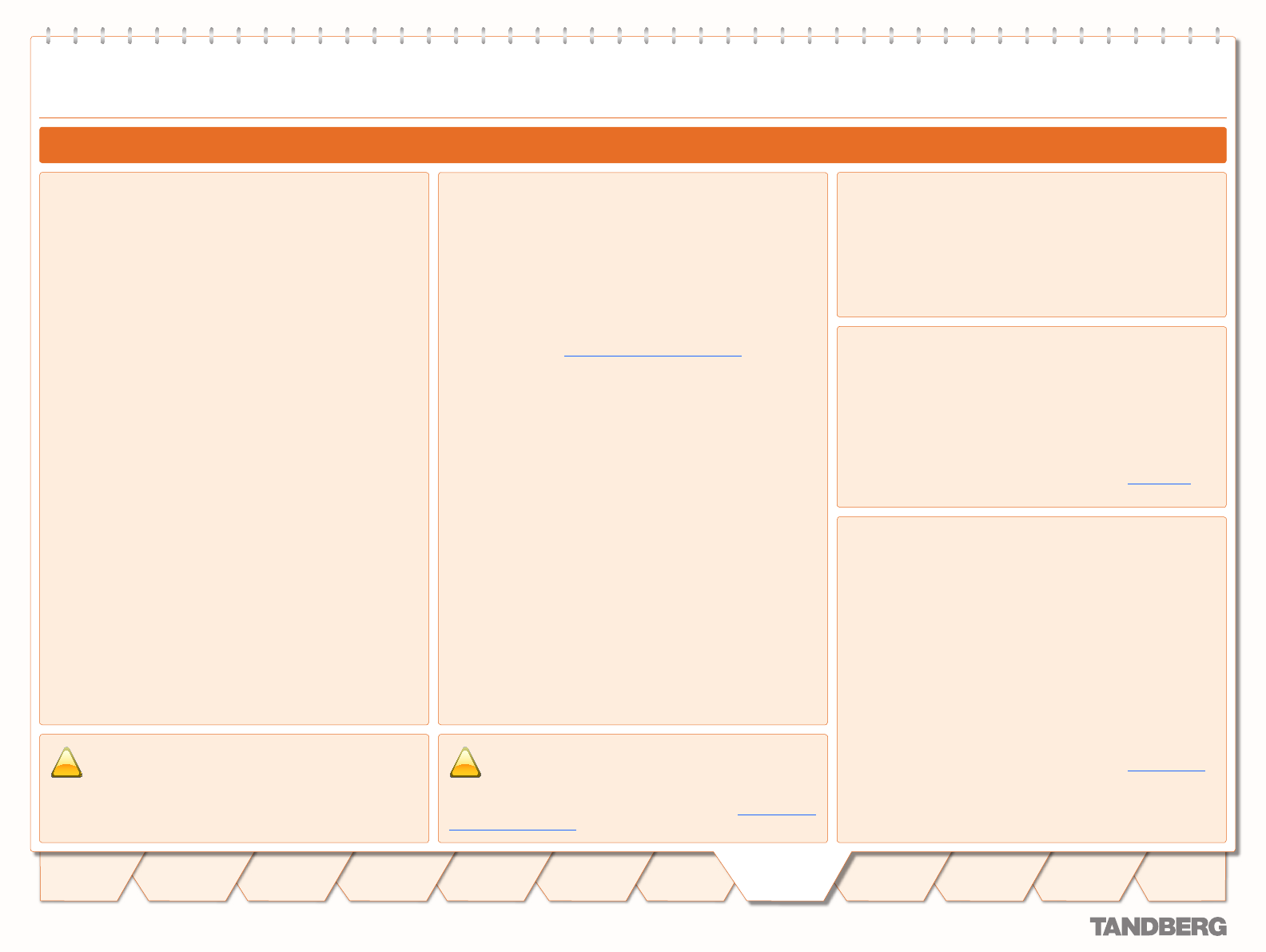
D 14049.01
07.2007
61
Text goes here
TANDBERG VIDEO COMMUNICATION SERVER
ADMINISTRATOR GUIDE
Introduction
Getting
Started
System
Overview
System
Configuration
H.323 & SIP
Configuration
Registration
Control
Zones and
Neighbors
Call
Processing
Firewall
Traversal
Bandwidth
Control
Maintenance
Appendices
TANDBERG VIDEO COMMUNICATION SERVER
ADMINISTRATOR GUIDE
Call
Processing
Call Processing
About the Different Address Types
The destination address that is entered via the caller’s
endpoint can take a number of different formats, and this
will affect the specific process that the VCS follows when
attempting to locate the destination endpoint. The address
types supported by the VCS are:
IP address e.g. 10.44.10.1 or 3ffe:80ee:3706::10:35
H.323 ID e.g. john.smith or john.smith@example.com
E.164 alias e.g. 441189876432 or 6432
URI e.g. john.smith@example.com
ENUM e.g. 441189876432 or 6432
Each of these address types may require some configuration
of the VCS in order for them to be supported. The following
sections describe the configuration required for each address
type.
•
•
•
•
•
Dialing by IP Address
Dialing by IP address is necessary when the destination
endpoint is not registered with any system (e.g. VCS,
gatekeeper or Border Controller). If the destination endpoint
is registered with one of these systems, then it may still be
possible to call it using its IP address but we recommend that
one of the other addressing schemes should be used instead
as they are more flexible.
In order to make a call by dialing the destination endpoint’s
IP address, the call must be able to be routed via a VCS that
is configured with a Calls to Unknown IP Addresses setting of
Direct. This could be the local VCS, or it could be one of its
neighbors (in which case the local VCS would route the call to
the neighbor, which would then place the call directly to the
IP address).
However, if the destination IP address is found in a local
subzone (i.e. it is an endpoint registered to the same VCS
as the endpoint making the call), then the call will be placed
regardless of the Calls to Unknown IP Addresses setting.
Endpoints registered to a VCS Border Controller
Calls made by dialing the IP address of an endpoint registered
directly with a VCS Border Controller will be forced to route
through the VCS Border Controller. The call will therefore be
subject to any restrictions configured on that system.
Dialing by Address Types
!
If you are calling from an unregistered endpoint, we do
not recommend dialing the destination endpoint using
its IP address. The presence of a firewall may disrupt
the call. Instead place the call to the VCS to which the
destination endpoint is registered as described in Calls from an
Unregistered Endpoint.
Dialing by H.323 ID or E.164 alias
No special configuration is required in order to place a call
using an H.323 ID or E.164 alias. The VCS follows the usual
process and searches for the ID or alias among its local
registrations and those of its Alternates. If no match is found,
it may forward the query on to its neighbors, depending on the
match and priority settings of each.
Dialing by H.323 or SIP URIH.323 or SIP URI
When a user places a call using URI dialing, they will typically
dial name@example.com.
URI dialing makes use of DNS to locate the destination
endpoint. In order to support URI dialing on the VCS you must
configure it with at least one DNS server and at least one DNS
zone,
Full instructions on how to configure the VCS to support URI
dialing (both outbound and inbound) are given in URI Dialing.
Dialing by ENUM
ENUM dialing allows an endpoint to be contacted by a caller
dialing an E.164 number - a telephone number - even if that
endpoint has registered using a different format of alias. The
E.164 number is converted into a URI by the DNS system, and
the rules for URI dialing are then followed to place the call.
The ENUM dialing facility allows you to retain the flexibility of
URI dialing whilst having the simplicity of being called using
just a number - particularly important if any of your callers are
restricted to dialing via a numeric keypad.
In order to support ENUM dialing on the VCS you must configure
it with at least one DNS server and the appropriate ENUM
zone(s).
Full instructions on how to configure the VCS to support ENUM
dialing (both outbound and inbound) are given in ENUM Dialing.
!
We recommend that endpoints register with an H.323 ID
that is in the form of a URI.



